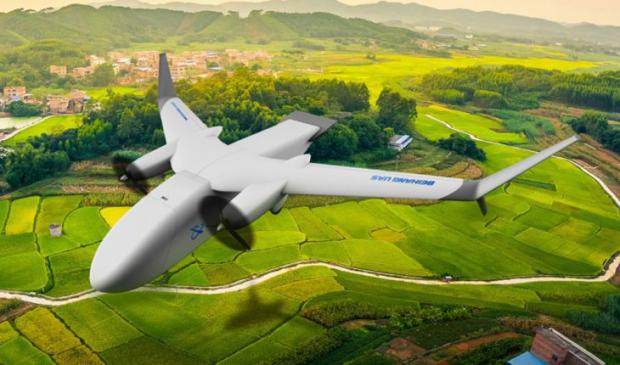
Breaking News
 Nancy Pelosi has officially announced her RETIREMENT at the end of her term, January 3, 2027.
Nancy Pelosi has officially announced her RETIREMENT at the end of her term, January 3, 2027.
 Omeed Malik: The Technocrat Muslim Billionaire Inside MAGA
Omeed Malik: The Technocrat Muslim Billionaire Inside MAGA
 Democrat-led government shutdown is now causing flight delays, threatening air traffic control,...
Democrat-led government shutdown is now causing flight delays, threatening air traffic control,...
Top Tech News
 HUGE 32kWh LiFePO4 DIY Battery w/ 628Ah Cells! 90 Minute Build
HUGE 32kWh LiFePO4 DIY Battery w/ 628Ah Cells! 90 Minute Build
 What Has Bitcoin Become 17 Years After Satoshi Nakamoto Published The Whitepaper?
What Has Bitcoin Become 17 Years After Satoshi Nakamoto Published The Whitepaper?
 Japan just injected artificial blood into a human. No blood type needed. No refrigeration.
Japan just injected artificial blood into a human. No blood type needed. No refrigeration.
 The 6 Best LLM Tools To Run Models Locally
The 6 Best LLM Tools To Run Models Locally
 Testing My First Sodium-Ion Solar Battery
Testing My First Sodium-Ion Solar Battery
 A man once paralyzed from the waist down now stands on his own, not with machines or wires,...
A man once paralyzed from the waist down now stands on his own, not with machines or wires,...
 Review: Thumb-sized thermal camera turns your phone into a smart tool
Review: Thumb-sized thermal camera turns your phone into a smart tool
 Army To Bring Nuclear Microreactors To Its Bases By 2028
Army To Bring Nuclear Microreactors To Its Bases By 2028
 Nissan Says It's On Track For Solid-State Batteries That Double EV Range By 2028
Nissan Says It's On Track For Solid-State Batteries That Double EV Range By 2028
Alibaba and JD.com invest billions in drones and robots working to global delivery under 72 hours

Robots and drones for delivery were all over the annual Global Smart Logistics Summit. Several automated guided vehicles (AGVs), reminiscent of Roomba's robot vacuum cleaners, were moving metal racks stacked with piles of boxes. There were autonomous drones that can carry a payload of as much as a metric ton to self-driving carts that can move along streets to deliver an array of packages to different customers.
Alibaba's founder and executive chairman Jack Ma Yun wants to bring global delivery times for his logistics affiliate to under 72 hours – and he will invest over a hundred billion yuan to achieve this.
China's courier industry has boomed over the last few years in line with the rise of e-commerce, with around 130 million packages now delivered to consumers in China every day – the highest number globally, according to Alibaba's Jack Ma.
Today, the combined market cap of Chinese courier firms SF Express, ZTO Express, STO Express, YTO Express, Best Inc, Yunda Express, and Deppon Logistics adds up to about US$82 billion.

JD.com and Alibaba logistics
JD.com and Alibaba are going down different paths to build their logistics infrastructure.
Alibaba, which traditionally favors an asset-light approach, in 2013 established its logistics affiliate Cainiao, which partners with delivery companies to produce an open source, standardized logistics process that can provide insights to increase productivity. JD.com decided to build a proprietary logistics network, constructing warehouses and hiring large fleets of deliverymen to service customers across the country in a model similar to Amazon in the US.
Alibaba took a controlling stake in Cainiao last September, it said that it would invest 100 billion yuan (US$15.6 billion) in building an efficient logistics network that would allow packages to be delivered within China in 24 hours, and globally within 72 hours.
As part of its efficiency drive, Cainiao has invested heavily in developing technologies with partners such as Quicktron, deploying automated guided vehicles (AGVs) that can carry shelves stocked with half a metric ton of goods.

 The Technocratic Dark State
The Technocratic Dark State Carbon based computers that run on iron
Carbon based computers that run on iron

